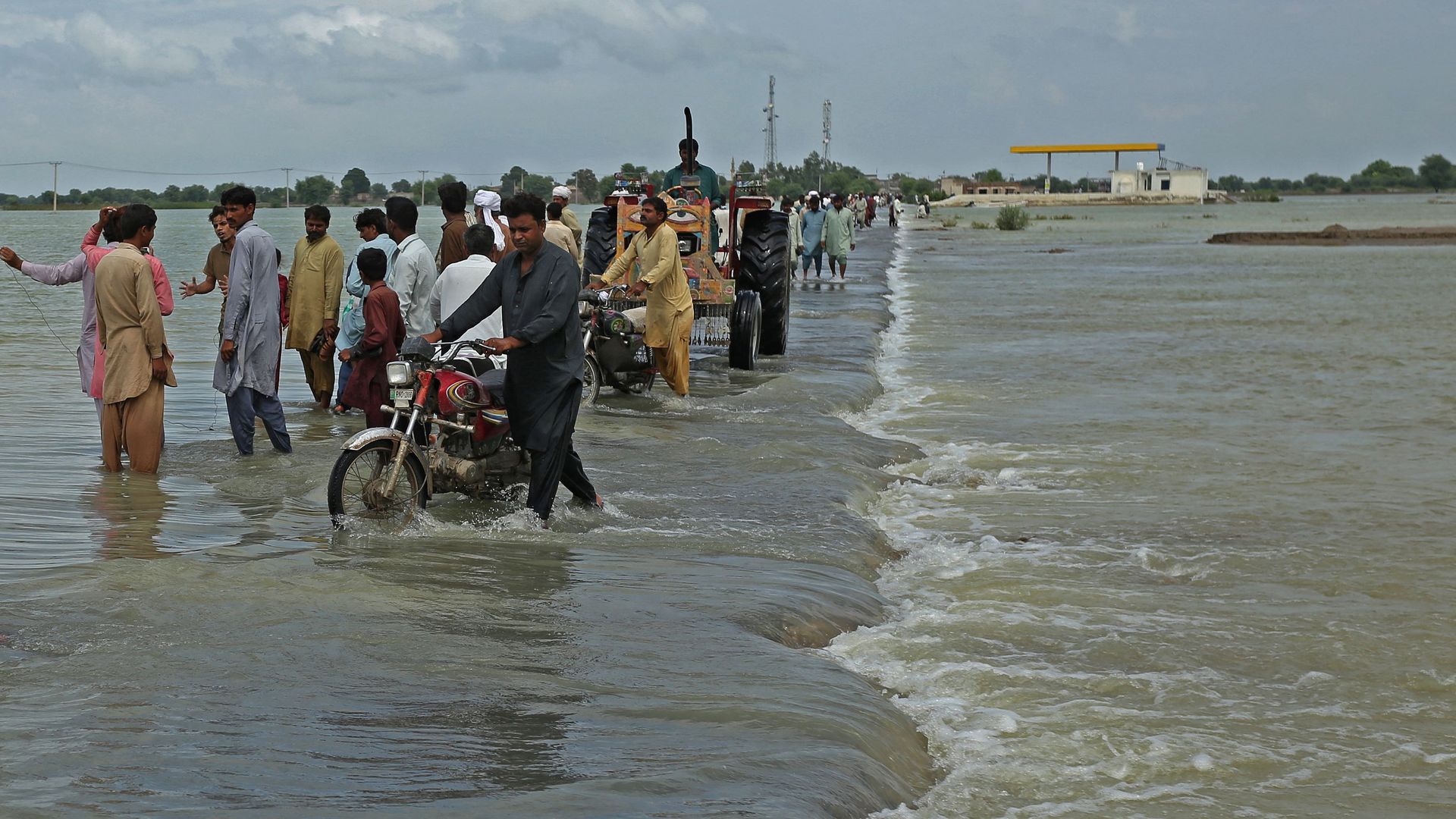Aug 25, 2022 - World
Over 900 killed as monsoon rains and floods devastate Pakistan
Add Axios as your preferred source to
see more of our stories on Google.

Stranded people wade through a flooded area after heavy monsoon rainfall in Rajanpur district of Punjab province. Photo: Shahid Saeed Mirza/AFP via Getty Images
